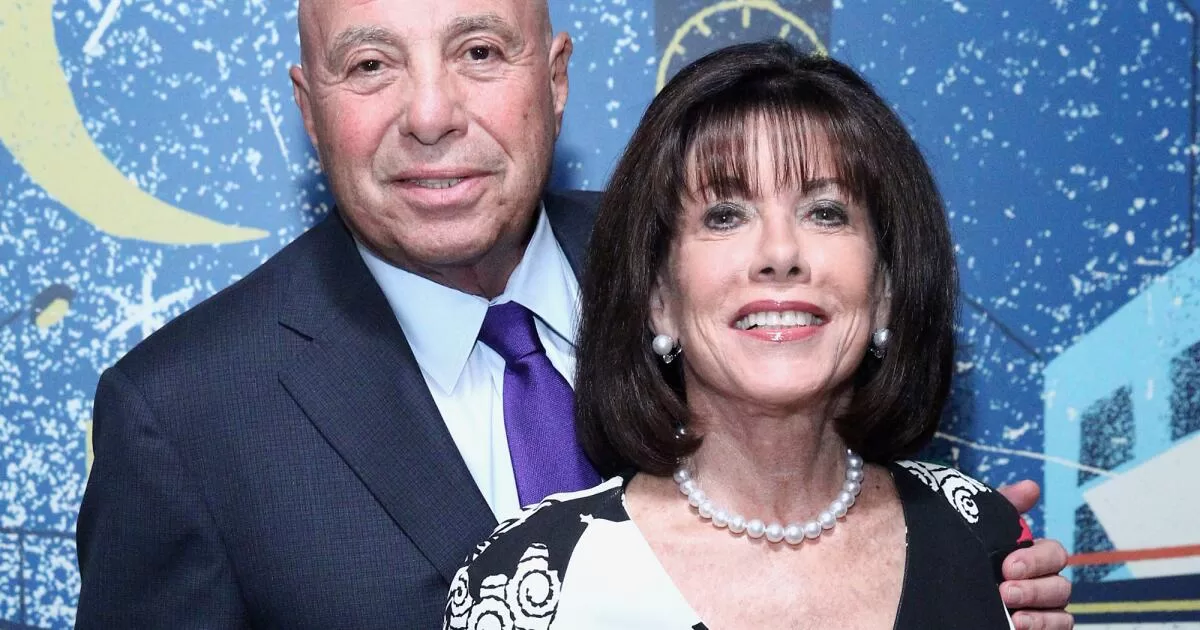Jay Sures, vice chairman of talent agency UTA (which acquired Leibner’s firm N.S. Bienstock in 2014), said in an internal memo that Leibner died at his home in Manhattan surrounded by family members.
“Richard will be remembered as the agent who transformed the news business,” Sures said in the memo. “To say that Richard was iconic and larger than life is truly an understatement.”
Over a nearly six-decade career, Leibner was known as a fierce negotiator for a who’s who of network TV news stars including Diane Sawyer, Mike Wallace, Norah O’Donnell, Ed Bradley, Bill Whitaker and Charlie Rose. Former clients, many of whom he represented for decades, continued to consult with him after his retirement in 2022.
Leibner had the ability to recognize changes in the TV news landscape and then capitalize on them.
When legendary sports TV executive Roone Arledge took over ABC News in the late 1970s, he told Leibner to bring him clients from CBS and NBC who believed they were underpaid. Leibner swung into action and lifted the earning power throughout the entire TV news industry as a result.
As part of Arledge’s recruitment drive, he aggressively pursued CBS News star Dan Rather. Rather stayed at CBS, but Leibner used the offer as leverage to get him named as successor to “CBS Evening News” anchor Walter Cronkite — even though the job had been promised to the network’s Washington correspondent Roger Mudd. Rather’s new assignment came with a record-setting contract that paid $2.2 million a year.
When Ted Turner launched CNN in 1980, Leibner brought the mogul established names such as Daniel Schorr, who gave the nascent cable news operation credibility.
“Richard broadened the definition of talent in the television news business and increased its value enormously,” Andrew Heyward, a former CBS News president, said in a 2022 interview. “Not just for the big-name stars, but for other people that may not be in the top echelon. You had this phenomenon of associate producers walking around saying, ‘I have another year in my contract’ with no irony. This was a new thing.”
Some network news executives were not happy with how Leibner’s agency disrupted their business model. Ed Joyce, a CBS News president in the early 1980s, referred to the Bienstock agency as “flesh peddlers.” Leibner maintained his goal was to get clients “a fairer share of what the business is grossing.”
Leibner was born in Brooklyn and graduated from the University of Rochester. He joined his father’s New York City accounting firm in 1964. Most of their clients were the music publishers and small record companies that operated out of the legendary Brill Building in Times Square.
Leibner and his father eventually joined forces with Nate Bienstock, a life insurance salesman whose clients included CBS News commentator Eric Sevareid and author John Steinbeck. As more journalists started doing television work in the 1960s, Bienstock started handling contracts for them as a side business.
The younger Leibner observed Bienstock and the growth of the TV news. Correspondents and anchors covering the Vietnam War and the civil rights movement became household names. Soon, Leibner was representing television news talent.
“The major agencies were all focused on movies and television and making the big money in package fees,” Leibner told The Times in a 2022 interview. “We were specialists, and that’s how we got the foothold and got ahead of everybody.”
By the end of the 1970s, Leibner’s client roster included Rather, Morley Safer, Wallace and Andy Rooney, all part of the cast of “60 Minutes” as it grew into the most popular news program.
Leibner represented Sawyer when she became the first woman correspondent on “60 Minutes,” and Bradley, the program’s first Black journalist. He later engineered Sawyer’s move to ABC News, where she eventually became anchor of “ABC World News Tonight.”
Leibner’s business grew with the help of his wife, Carole Cooper, a former TV commercial producer he met on a blind date in 1962. She joined Bienstock in 1976, helping develop the careers of Bill O’Reilly, Megyn Kelly and CNN’s Anderson Cooper, whom she still represents at UTA, where she continues to work.
Leibner said Cooper complemented him, often softening his brash personality.
“She knows my excesses,” Leibner said. “She knows when to stop me from telling dirty jokes. She also had more confidence in my ability to take risks and do things than I even thought. I guess our marriage has lasted as long as it has, and has been as good as it is, because we’re not afraid to be critical and honest with each other.”
In recent years, Leibner devoted much of his time to a family foundation, which contributes to organizations that provide scholarships for students wanting to get into the TV news business. He was also a major supporter of the Library of American Broadcasting Foundation, which houses the papers of journalists at the University of Maryland.
Leibner is survived by Cooper and two sons, Jonathan and Adam, who is also an agent at UTA, and four grandchildren.
